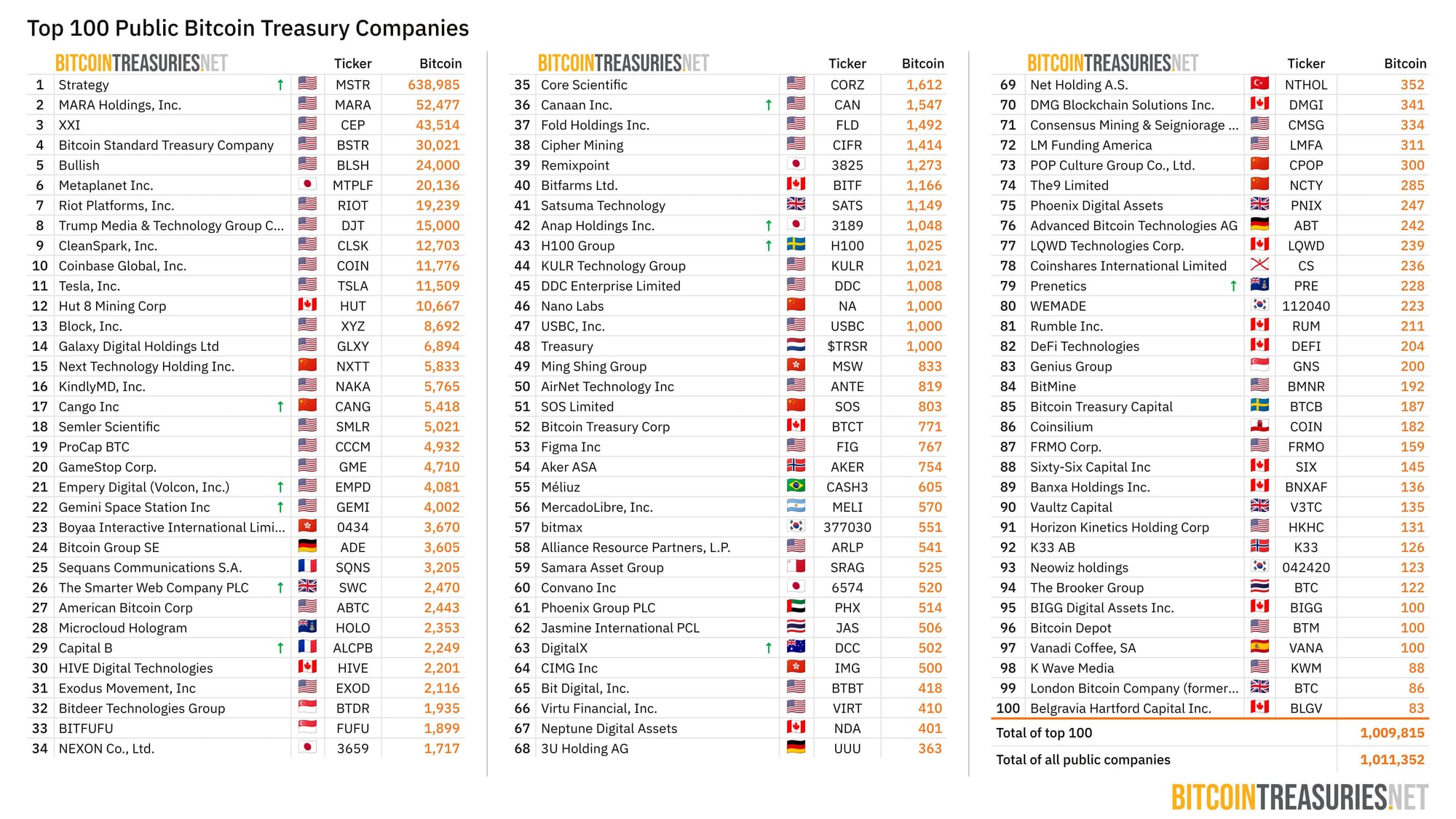Strategy has added 525 Bitcoin to its corporate balance sheet, bringing its total holdings to 638,985 BTC, according to a recent Form 8-K filing with the U.S. Securities and Exchange Commission (SEC).
The acquisition, valued at around $28 million based on market prices at the time of purchase, reflects the company’s continued commitment to its Bitcoin-focused treasury strategy.
How the purchase was funded
Strategy reported that the Bitcoin purchase was financed primarily through proceeds from a convertible note issuance earlier this year. Since 2020, the company has regularly used debt and equity offerings to raise capital and then convert those funds into Bitcoin. This approach sets it apart from most public companies, which typically maintain cash or low-risk assets as their primary treasury reserves.
Strategy vs. corporate peers
Strategy’s Bitcoin treasury far exceeds those of other public firms, according to Bitcointreasuries.net.

- Marathon Digital holds approximately 52,477 BTC.
- Twenty One (Tether-backed) holds about 43,514 BTC.
- Bitcoin Standard Treasury Company reports roughly 30,021 BTC.
These figures illustrate Strategy’s outsized position compared to peers. While more corporations have begun experimenting with Bitcoin, none have matched Strategy’s scale of commitment.
Accounting and regulatory considerations
Under U.S. GAAP accounting standards, Bitcoin is classified as an intangible asset. This means impairment losses must be recognized on financial statements when market prices fall below the acquisition cost basis, even if the price later recovers.
This accounting treatment has previously forced Strategy to report significant non-cash impairment charges during periods of price volatility. Despite this, the company has consistently signaled that it views Bitcoin as a long-term store of value.
From a regulatory standpoint, U.S. agencies continue to monitor how corporations integrate digital assets into balance sheets. Disclosure requirements, risk statements, and shareholder reporting remain central to ensuring corporate transparency when publicly traded firms allocate capital into cryptocurrencies.
Market context
The adoption of Bitcoin for treasury management remains limited among U.S. corporations. Most large firms continue to prioritize cash equivalents, bonds, or other liquid instruments. Strategy’s approach therefore represents a departure from conventional treasury practices, positioning it as one of the most prominent case studies in corporate crypto adoption.
Outlook
Strategy has not indicated that it plans to slow its Bitcoin purchases. Future acquisitions will likely depend on market conditions, financing opportunities through equity or debt offerings, and continued approval from shareholders and regulators.
As of its most recent acquisition, the company’s 638,985 BTC reserve stands as the largest corporate-owned Bitcoin treasury globally, a uniquely aggressive strategy that continues to draw attention across both cryptocurrency and traditional finance sectors.

Disclaimer: All materials on this site are for informational purposes only. None of the material should be interpreted as investment advice. Please note that despite the nature of much of the material created and hosted on this website, HODL FM is not a financial reference resource, and the opinions of authors and other contributors are their own and should not be taken as financial advice. If you require advice. HODL FM strongly recommends contacting a qualified industry professional.





